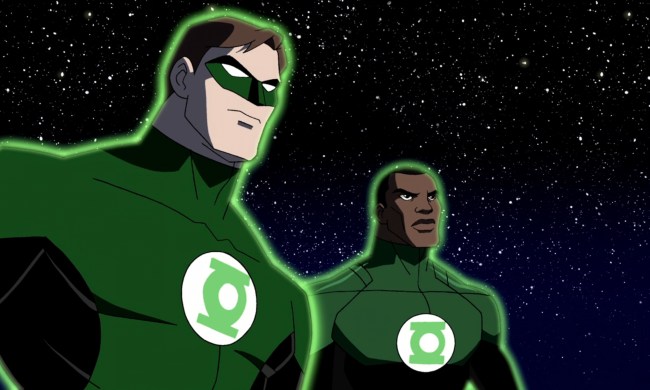I think it’s not an overstatement to say the DCEU is dead — and that The Flash killed it. To be fair, the DCEU was always meant to die, and The Flash was always meant to kill it. However, Andy Muschietti’s long-awaited, troubled, now-infamous film might have also killed the DC brand as a whole, which was decidedly not in the plans. That’s because The Flash is terrible, the sort of film deprived of any ounce of artistic integrity, one that’s meant to be consumed rather than enjoyed, witnessed rather than appreciated.
The Flash is a Frankenstein’s monster of a movie that went through so many hands and has so many different ideas that it doesn’t even have an identity. In a sea of franchises and IP films, The Flash is the most unoriginal, uninspired, vapid, and basic effort. It recycles the most effective joke from Justice League, rips off the most famous sequence from X-Men: Days of Future Past, and fails to provide a refreshing take on the Multiverse to differentiate itself from the MCU or even The CW. The Flash is a cheap and desperate attempt at nostalgia and the final nail in the DC coffin that not even Tom Cruise, Stephen King, and James Gunn could save. But The Flash was never going to be saved because it was never made to showcase its central character. It was always a tool meant to course-correct a dying franchise.
Because, if we’re being honest, The Flash was destined to fail, and what we’re witnessing is destiny fulfilled.
The true Multiverse of madness
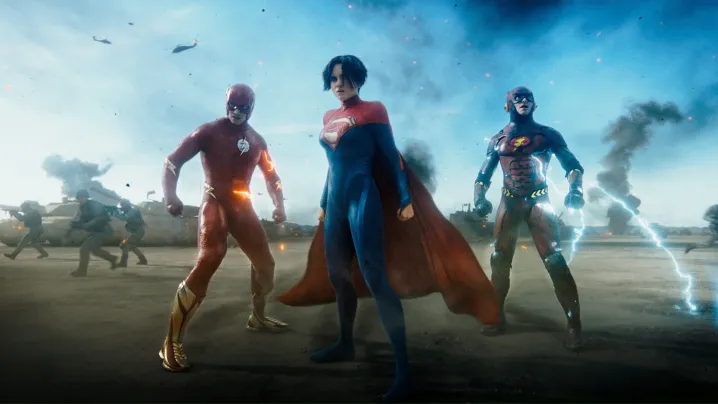
The Multiverse has taken over comic-based franchises as a natural progression of their bigger-is-better ideology. The spectacular success of Spider-Man: Far From Home convinced studios that the Multiverse was where the money and fandom were, to the point where Marvel built its entire second saga around it. And because the live-action DC is apparently incapable of any original thought, it also chased the Multiverse mania by using the long-gestating Flash project to adapt one of the comic book giant’s most famous stories: Flashpoint.
But even Marvel suffered the consequences of its hubris, realizing halfway through that the Multiverse was a stupid, needlessly complicated idea that mainstream audiences wouldn’t understand. And while the once-mighty MCU took a step back to reconsider its approach, especially amid the turmoil surrounding the centerpiece of its Multiversal saga, DC went full speed ahead with its troubled plans, to the point where it stood behind its controversial centerpiece. And while DC had no issue axing the completed Batgirl movie and firing Henry Cavill in a painfully public manner, it firmly supported The Flash and called it “the best superhero movie ever.”
Yet, all its efforts — the fan screenings, A-list endorsers, and whatnot — reeked of desperation; the once-powerful studio was on its knees, scrambling to sell a broken-down Chevy as a 2023 Tesla. The six-year development journey, multiple directors and writers, troubling star at its center, questionable plot, numerous delays, and three different endings all pointed to one undeniable truth: The Flash was dead on arrival.
On a fundamental level, The Flash was doomed from the get-go. Unlike other Multiversal movies, where the Multiverse is a fun, look-who-they-brought-back addition to the story, The Flash existed solely to use the Multiverse to correct DC’s numerous mistakes. It was never a showcase for the Scarlet Speedster — a crucial Justice League member popular enough to justify a solo movie. Had there been a Multiversal story with Aquaman as the star, I bet DC would have pivoted to that and coldly buried the Flash movie without batting an eye, as it had multiple other would-be projects.
You can feel this aimlessness in the finished project. Sitting through The Flash is like watching several colorful products passing through a conveyer belt. There’s this character! Now there’s that character! I think I know who that one is! And what the hell is he doing here? The Flash is like walking into a massive Funko Pop store: the characters are familiar, but they’re plastic, purposeless figures meant to be toyed with. The film is what Scorsese meant when he said superhero adaptations were “theme park movies.”
Won’t someone think of the actors?
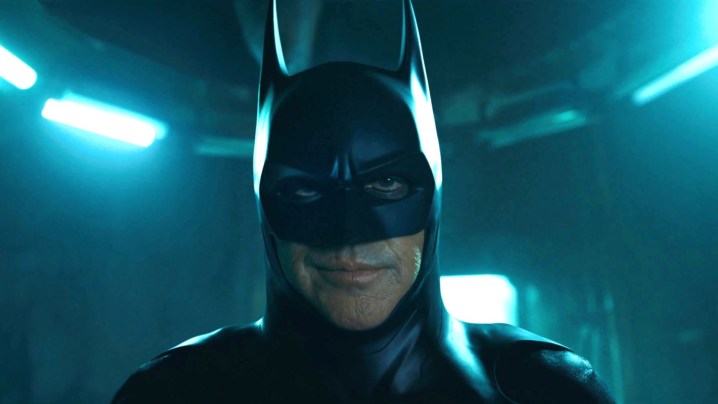
The Flash sold itself not as the first solo project for the Scarlet Speedster, but as the movie where Michael Keaton’s Batman returned. I don’t blame DC for that: Michael Keaton is the best Batman actor by a considerable margin, and he is, indeed, the film’s saving grace. Keaton is game as both Bruce and Batman, delivering a committed and compelling performance that stands out like a sore thumb in a film where everyone else is hilariously out of sync. However, Keaton is great not because of what The Flash does for him, which is a big, insulting nothing, but because of what he and Tim Burton achieved with Batman and Batman Returns.
Everyone else in The Flash is good, but far from great. Maribel Verdú and Ron Livingston try their best, but even they can’t inject real emotion into a story that feels half-cooked at best. Kiersey Clemons gets nothing to do, as does Ben Affleck, who looks as tired on screen as he does in real life. Then there’s newcomer Sasha Calle, who steals the spotlight as Supergirl in a film that severely underutilizes her. It’s funny to me that every trait fans and critics hated about Henry Cavill’s Superman — the stoicism, the brutal approach, the overall lack of wholesomeness — is abundantly present in Calle’s Supergirl, yet the reception couldn’t have been more different. True, Calle is playing a unique version of Supergirl, deprived of any form of human connection, and Supergirl has never been as virtuous as Superman. However, the fact remains that this is very much a Snyderverse version of Supergirl who would fit perfectly alongside Cavill’s Man of Steel.
Then there’s Michael Shannon, bless his soul, there to collect a paycheck and not even trying to look mildly interested in what is basically the live-action equivalent of a 10-year-old smashing Max Steels together. Finally, there’s Ezra Miller. I won’t go into details about their numerous legal troubles, and to be fair, they do a good job in the film. However, they aren’t charming or unique enough in the role to make audiences forget about their real-life situations. Everything they do in The Flash, Grant Gustin already did in the CW show — and better.
The uncanny valley reject
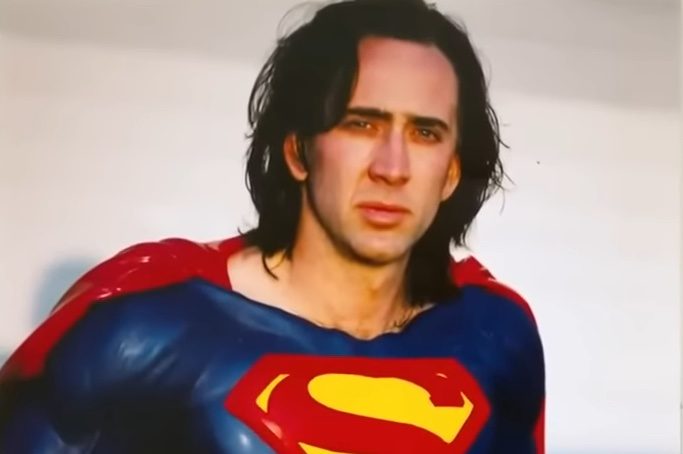
Note: If you haven’t watched The Flash, this is the point where you should stop reading because I’m about to spoil the third act. You’ve been warned.
I could have forgiven many things about The Flash. I’m a comic book fan who loves movies; I usually am very forgiving with my comic book adaptations. But The Flash lost me during the third act when Barry witnesses a mini Crisis on Infinite Earths inside the Speed Force. Numerous Multiverses clash against each other, revealing creepy, uncanny valley versions of the late Christopher Reeve alongside onetime Supergirl Helen Slater, Nicolas Cage as his never-fulfilled version of Superman, the late George Reeves as the 1950s Superman, and the late Adam West as the 1960s Batman.
I knew Cage would be in the film — Muschietti spoiled his cameo a month before The Flash came out — and Reeve and Slater were all over Twitter a day before I watched the movie. But the sudden sight of a disturbingly fake George Reeves sent chills down my spine. Reeves infamously hated the role, supposedly burning his suit at the end of every Superman season; when he died, the trades reported he took his own life because he “felt doomed to play Superman.” And there he was, on the big screen, again doomed to play Superman and brought to “life” in a movie that used his likeness to make the audience go, “He’s the guy from that old thing!”
I understand not bringing Cavill back because, by now, it’s clear that Warner Bros. has some kind of grudge against him. But what about Brandon Routh? Tom Welling? Tyler Hoechlin? Three fan-favorite, willing actors whose presence in The Flash would have been more impactful than a half-made, disturbing version of Christopher Reeve that made the abominations in Tom Hooper’s Cats look like Na’vi from James Cameron’s Avatar.
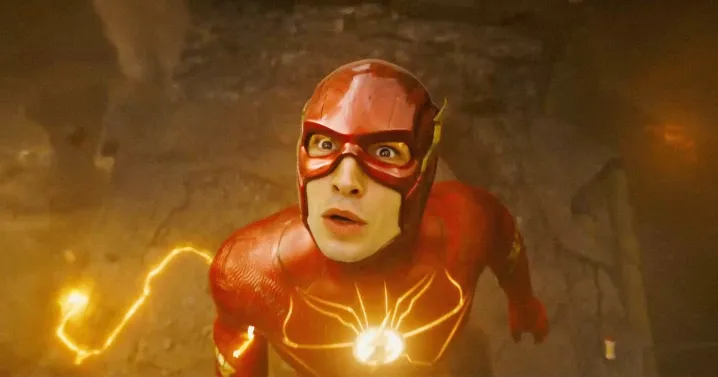
When I thought things couldn’t get worse, George Clooney showed up in the final scene, proving Barry’s shenanigans messed with the timeline and erased Batffleck. Never mind that Keaton’s presence in The Flash pretty much denies the existence of Val Kilmer and Clooney’s Batmen — who cares about that? George Clooney isn’t there because it makes sense or because his presence is satisfying. He’s there because James Gunn wanted to flex his muscles and prove he could bring the most notoriously outspoken of the Batmen back for another round. “He’s the guy from that awful Batman movie!” the audience would yell. Good joke, right?
That’s what The Flash is: a collection of “He’s the dude from that one thing” cameos and “He said the thing from that other thing” one-liners. The Flash mocks Reeve, West, and Reeves’ legacies and reduces them to pitiful cameos meant to provoke jeers from audiences so used to this crap that nothing surprises them anymore. Because, in a world of IPs, even individuals are just properties ripe for exploitation.
What comes next?

The Flash is tracking to open to $60 million across the three-day weekend, coming in way below expectations. Word of mouth is divisive, the critics’ score is mediocre, and its box-office legs seem shorter than Johnny Bravo’s. In short: the film is a certified flop and a resounding “Yes” to the question, “Are audiences tired of DC?”
In a move that echoes Zachary Levi literally begging people to see Shazam! Fury of the Gods, Muschietti is claiming the Reverse Flash killed Barry’s mom and will be featured in the sequel, should there be one. But Reverse Flash should’ve been the villain for the first-ever Flash live-action film, as anyone with a passing knowledge of the character’s history would say. Alas, these people never wanted to make a Flash movie, and it shows; not even an admittedly talented filmmaker like Muschietti can change that.
But wasn’t this supposed to be the “greatest superhero movie ever?” Didn’t David Zaslav and James Gunn go around town claiming this was a supposed masterpiece that had to be seen on the big screen to be believed? Wasn’t this supposed to be DC’s grand return to the top? They had so much confidence in Muschietti that they even hired him to direct the upcoming Batman movie. Never mind Miller’s controversies or Warner’s ruthless approach to cost-cutting and tax write-offs that resulted in the cancellation of a fully finished film and the disappearance of multiple shows from the now-defunct HBO Max: The Flash was supposedly DC’s new crowning jewel, and everyone would bow down in the altar of its greatness.
Yet, what we ended up with was an average film with a 67% on Rotten Tomatoes, a B CinemaScore, and a pitiful $55 million domestic opening weekend. If this is the best DC can do, if this is the film Zaslav and Gunn were willing to put their hands on the fire for, what awaits us in the future? It’s a bleak time when one of DC’s greatest superheroes was better portrayed on The CW with a small budget and a dream than in a $200 million tentpole. But it’s not all bad. The Flash is a wake-up call for DC. Let the past die; kill it if you have to. And please, for the love of god, let the dead rest in peace.
The Flash is playing in theaters nationwide. See it at your own peril.

